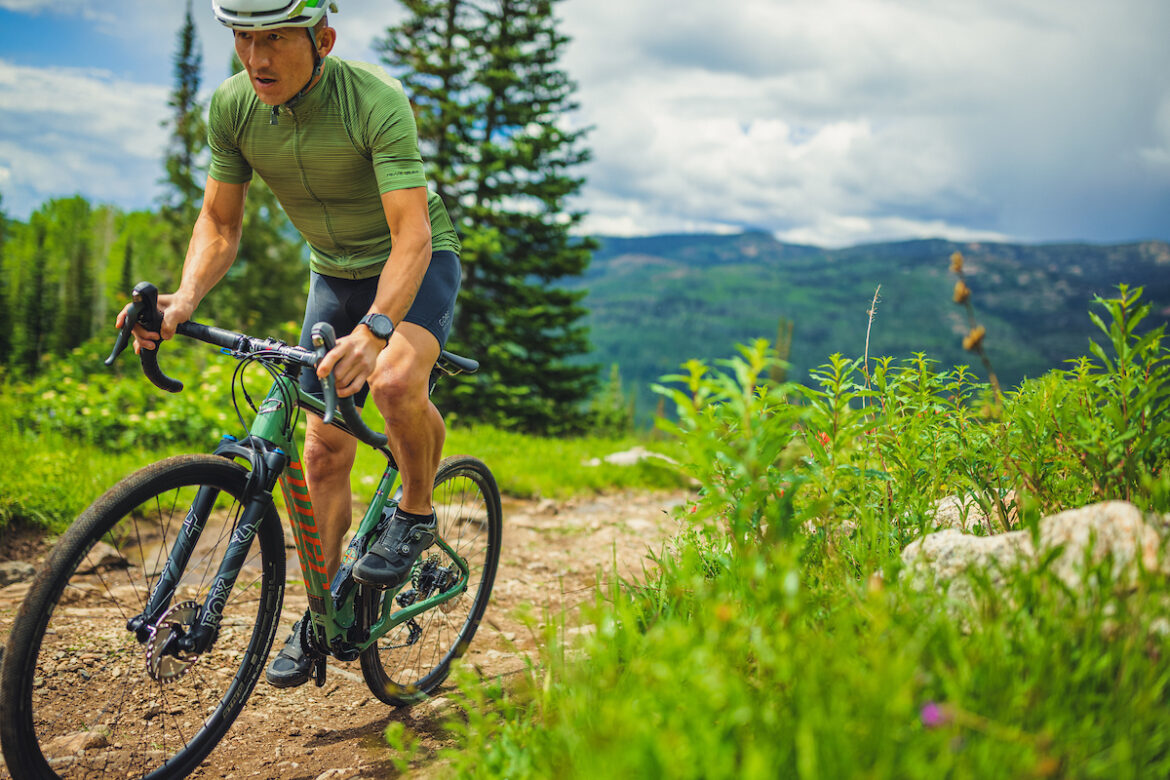
When my dad bought a Specialized Diverge in 2017, just a year after the brand launched its 20mm-travel Future Shock suspension system, I immediately wrote it off as a total Dad Bike.
Don’t get me wrong; at 70 years old, my dad is still fast and fit, and I’d agree that the Western Pennsylvania roads he rides, pockmarked as they are by the studded shoes of horses pulling Amish buggies, can be rough on your body’s natural suspension. But it was hard for me to imagine needing extra squish — even a scant 20mm positioned over the head tube — on the roads we ride here in Vermont.
And then, gravel blew up. Vermont has more dirt roads than paved — an absolutely true fact gravel race promoters love to tout — and people started arriving here in droves to participate in various gravel events around the state. For a while, those gravel grinders mostly stuck to picturesque dirt roads, with a few short Class IV sections — that is, roads that are unmaintained — to add variety. And then those Class IV sections started getting longer and spicier in nature, and then suddenly you’d find yourself bombing down miles-worth of actual stream beds with 500 to 1,500 other bug-eyed, mud-spattered riders, all trying to pick the line with the least probability of endo-ing into the mud and getting run over.
And as a result, I realized two things: that I really liked riding a gravel bike on terrain usually reserved for my mountain bike. And that my dad was right: a little bit of suspension can go a long way in making the ride more comfortable — and enjoyable.
Bike brands aren’t oblivious to how much fun it can be to start a ride off on casual dirt roads, then throw in a sporty section of Class IV road or even singletrack. However, that doesn’t mean all of the singletrack-capable gravel bikes out there right now are billed as such. If you’re looking for a bike that’s fun and fast on a dirt-ride ramble but also fully up for a little off-road adventuring, you can achieve that goal with a bit of vertical compliance, trail-friendly geometry, full-on squish, or a combination of all three.
The trailblazer


This current era of gravel/trail crossover bikes comes on the heels of a few, earlier attempts. Cannondale was one of the first to add front suspension to a road/gravel bike with its 2015 Cannondale Slate. Fitted with a Lefty Oliver fork with 30mm of suspension — and running now-standard but then absurdly plump 42mm tires on 650B wheels — the bike’s silhouette was hardly subtle. However, it’s worth noting that it took Ted King to victory in the 2016 Unbound (née Dirty Kanza) gravel race, and Alison Tetrick to a victory (and a new course record) the following year. Cannondale discontinued the Slate in 2019 when it debuted the full-suspension Topstone, but it most certainly paved the way for other brands to start exploring the idea of suspension on gravel bikes. If you like the look of this, check out the Diverge.
The Specialized Diverge: vertical compliance without the bob
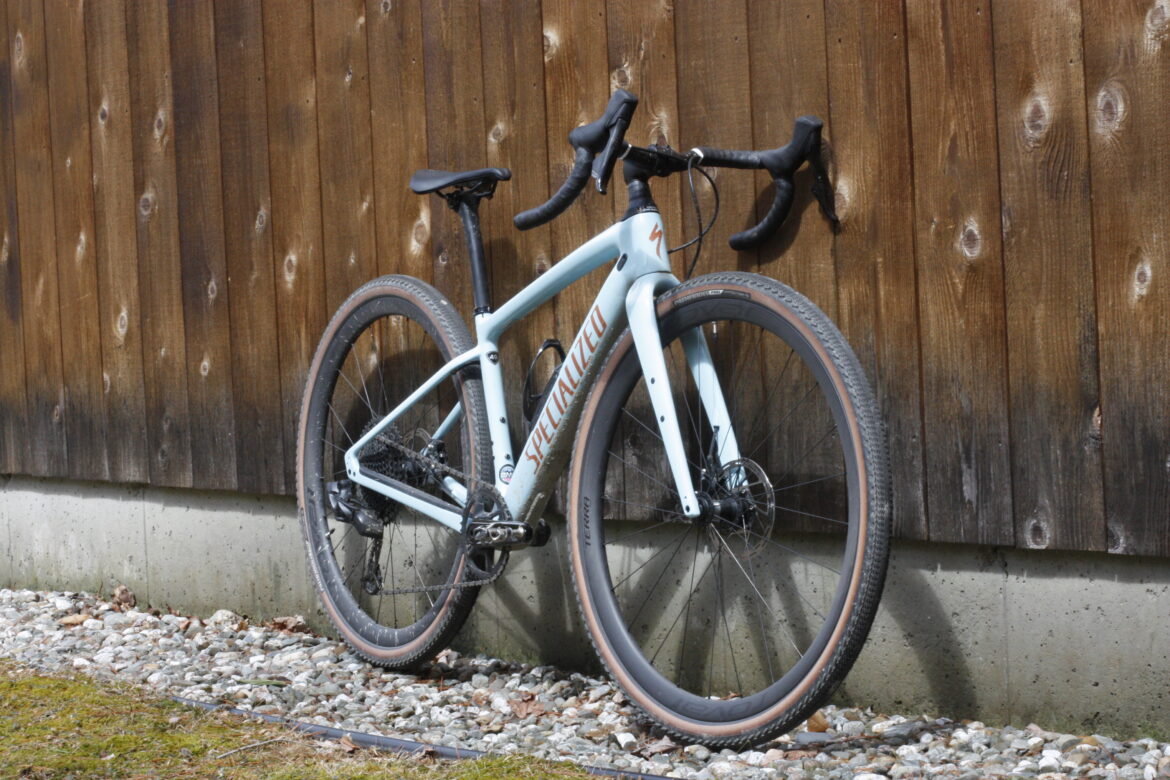
With the Diverge, Specialized took a different approach to suspension. The Future Shock is built around the idea of axial compliance — that is, it’s a shock system that moves vertically over the fork, instead of fore and aft of your front axle relative to the frame like a typical mountain bike fork. Having your handlebars move up to meet you rather than relying on fore and aft splay would, Specialized engineers argued, make the ride faster without slowing you down. Plus, because the 20mm Future Shock is paired with a stiff rear end — and a low bottom bracket — it climbs without pedal bob and descends with alacrity. That makes it a really fun steed for days when you’re slogging up dirt roads and want to take the fun way home. Just be warned: 20mm of suspension won’t soak up huge (or any, really) hits. So plan to pick your way down the trail with some caution.
One place you will notice your floating handlebars is on paved roads, or when you’re out of the saddle sprinting. It can be off-putting to feel vertical flex when you’re putting the power down, which is a problem (or not, depending on your riding style) that Specialized tackled in 2021 with the Future Shock 2.0, which includes a lock-out feature. Just remember: if the routes you typically ride leave you frequently reaching for the lock-out, you’re simply carrying the extra weight without the added benefit of shock absorption. If you’re mainly a mountain biker who’s looking to switch things up occasionally though, the Diverge might scratch your itch to ride trail and gravel on the same ride.
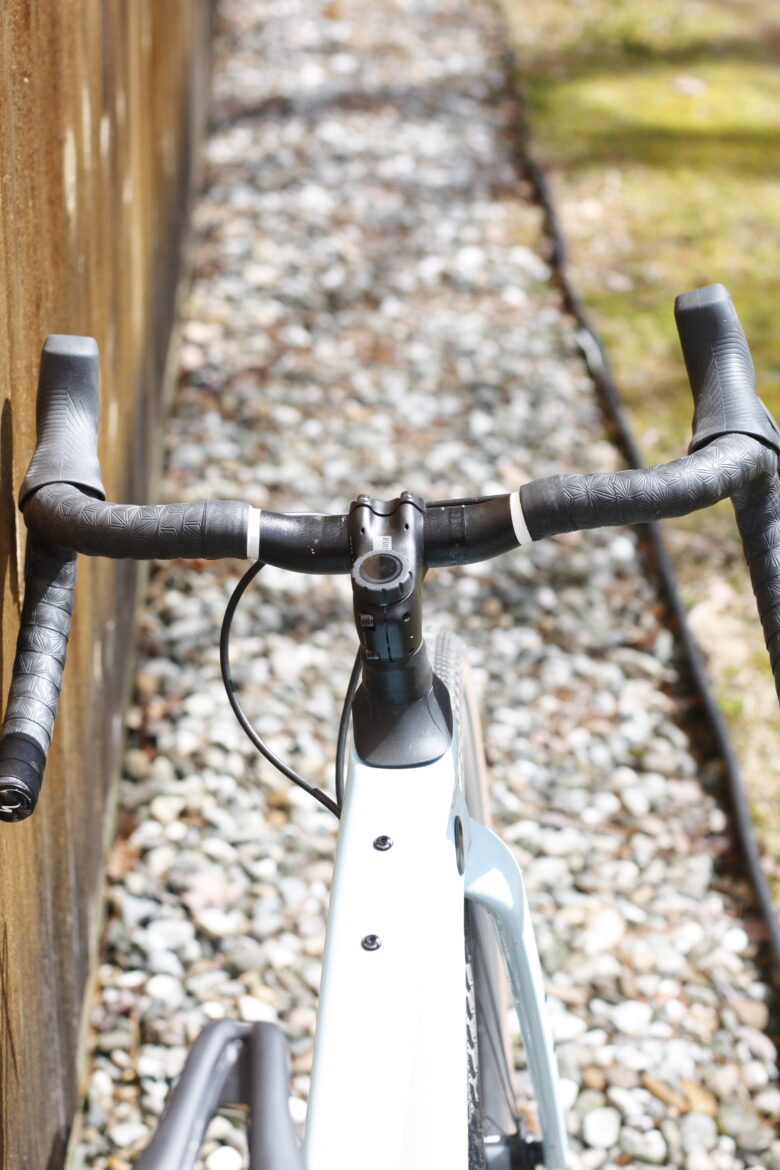

Who it’s for: My dad. And, shockingly, me. I live on a steep dirt road that’s bookended by mountain bike trails. Sometimes it’s simply too tempting to add switchbacks into an otherwise civil gravel ride on my way home, and with the 2022 Diverge Expert Carbon, I go for it. I’ve also been supremely impressed by how well this bike descends on rough, eyeteeth-rattling Class IV. Get down in the drops and you’re nearly invincible on most gravel-grinder courses — but you can still keep up with friends on weight-weenie bikes elsewhere on course.
- Price: $1,300 to $12,250.
- Available at Specialized.
The Niner MCR 9 RDO: full suspension for the smoothest ride

At first glance, the Niner MCR 9 RDO looks like an aberration of nature. Niner fused its patented Constantly Varying Arc (CVA) mountain bike suspension system onto a gravel bike frame, and the resulting visual is … somewhat startling. The CVA suspension system debuted in 2008 as a short dual-link, four-bar system originally designed to account for the greater bottom bracket drop of 29ers. The 50mm custom X-Fusion rear shock — paired with a 40mm Fox Float fork — has been tuned for the needs of gravel riders, not mountain bikers.
In short: it’s best for dealing with lots of small, juddering bumps, but not a lot of huge hits. Think washboards, not drops. And unlike the Diverge, it’s fully tunable for your riding needs.



Once I got over the way the MCR looks, I locked right into its key selling point: This thing is comfortable. The MCR stands for “Magic Carpet Ride,” and it fully delivers on that point. Washboards and streambeds are no match for the MCR, and it climbs rough singletrack like an absolute champ, as the short-travel-tuned CVA system keeps a seated, pedaling rider practically glued to the ground. It’s wonderful. But — and for me, this was a big “but” — the CVA makes standing climbs on gravel roads far less fun if you don’t get the suspension tuned just right.
You can lock out both front and rear suspension to reduce pedal bob, but doing so chokes up the geometry in a way that feels awkward and stilted, as the MCR has a comparatively steep and short front end (that just gets steeper when the fork compresses) paired with an extra-long rear end. If you love your long-low-slack mountain bike, you’re not going to love this — especially on downhill singletrack sections, no matter how smooth. Sure, its geometry is better suited for gravel grinding than your mountain bike. But at about 25 pounds in the four-star specs, you might as well pull out your hardtail and rip it on the downhill sections if you’re planning to link gravel with dirt.
Who it’s for: The Niner MCR 9 RDO is perfect for riders looking for ultimate comfort, and who aren’t looking to descend singletrack. If you’re a true gravel-racing privateer, the Niner RLT 9 is a far better choice. But if you just want to go out and enjoy the ride without rattling your eyeteeth loose, this truly is a magic carpet ride.
- Price: Starting at $4,999 for the 2-star build.
- Available at Moosejaw and other online retailers.
Salsa Cutthroat (not tested)
Another squishy gravel bike that’s also worth checking out is the Salsa Cutthroat, which bills itself as “an ultra-endurance, mixed-surface bike” — but one that has more singletrack-capable geometry. Unfortunately we weren’t able to get our hands on a Cutthroat.
Your turn: What do you think of gravel bikes with suspension?



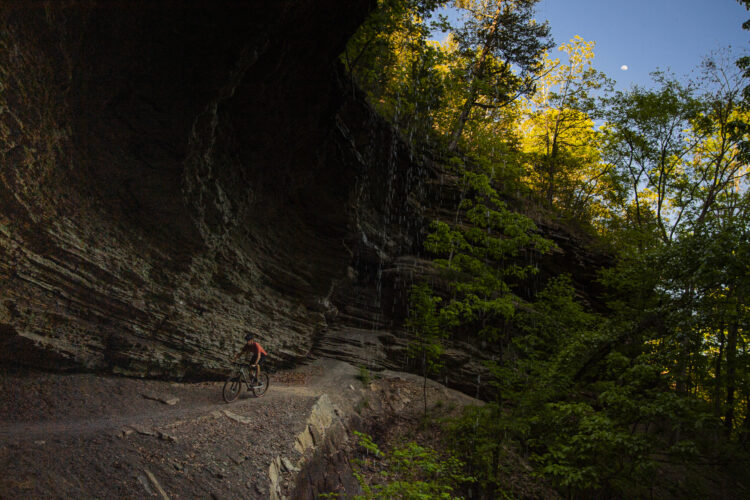
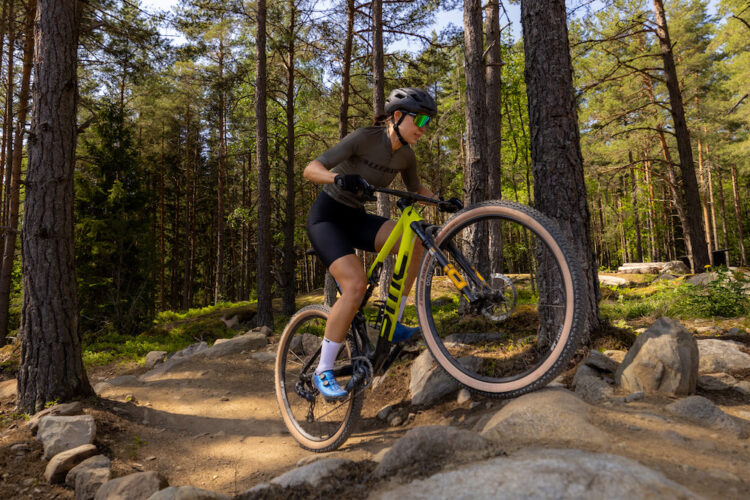

Salsa does not currently sell a Cutthroat with suspension, mostly relying on fatter than typical gravel tires for compliance. The rear end is rigid using Salsa’s “VRS5” carbon design to add some compliance to the ride.
The current generation Cutthroat is suspension geometry adjusted for a 100mm fork. I have a RockShox SID SL on my 2020 Cutty and it does ride wonderfully with front squish.
My current gravel bike is the Diverge e5 Comp. at first I thought the futureshock was a gimmick, but I do like it. I’d like to go back to one without for a few days just to really see the benefit.
The standout feature of the Diverge is the geometry in my opinion, I love that bike.
What about the Lauf True Grit?
That would be a great one to test too!
Gotta add the Topstone to the discussion. Lots of those out there these days.
Cool but I’ll stick my Proflex Off-road. Front and rear suspension. I custom mold my elastomers in varying colors and firmness.